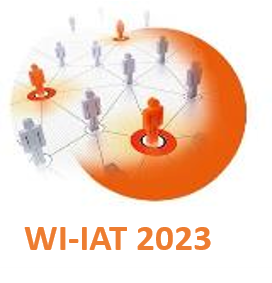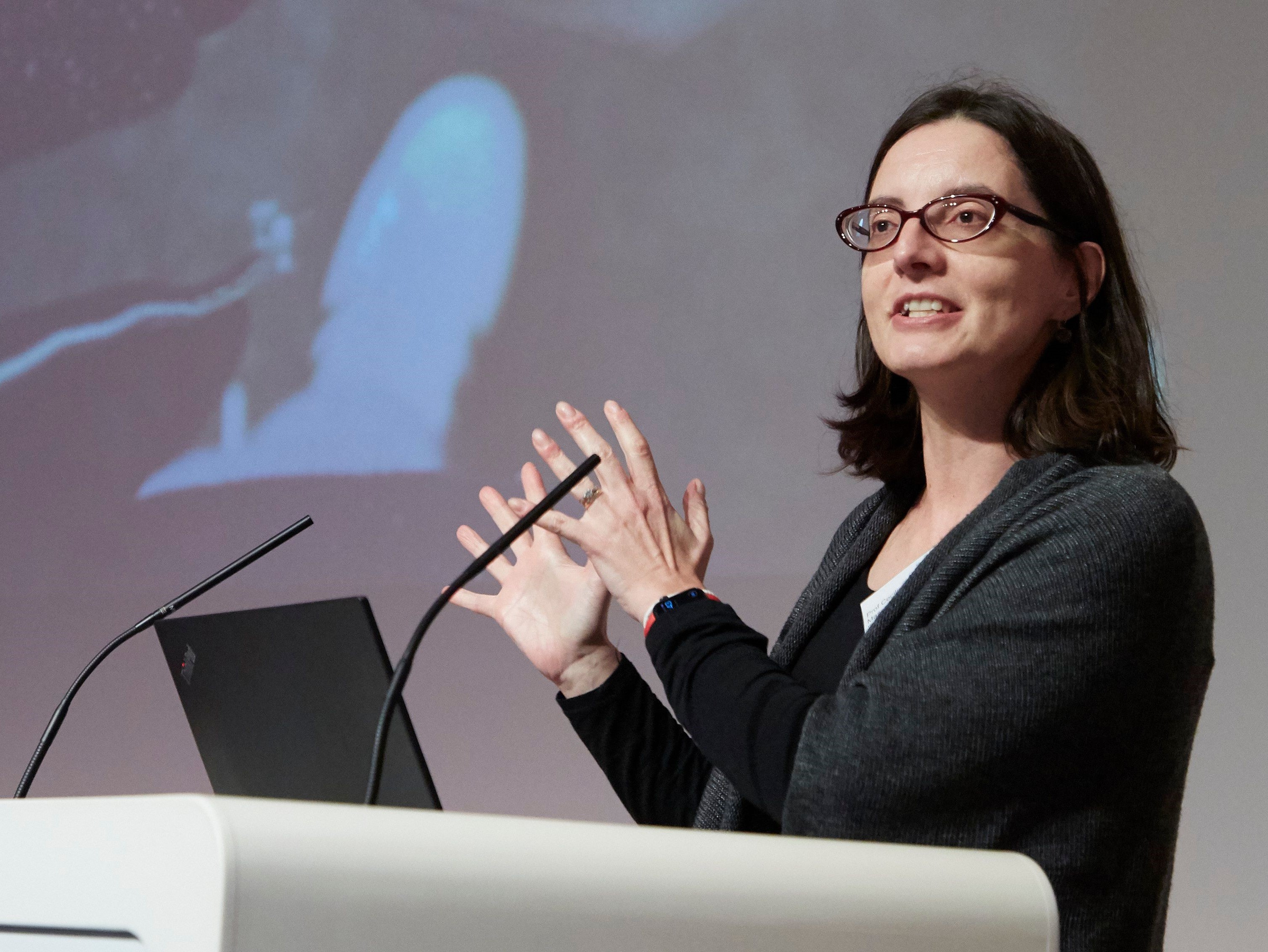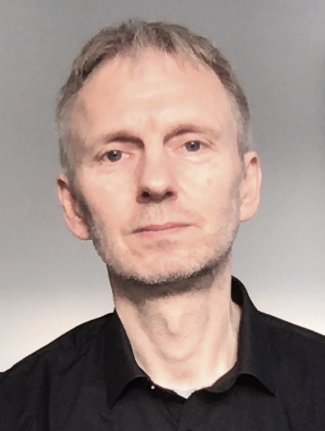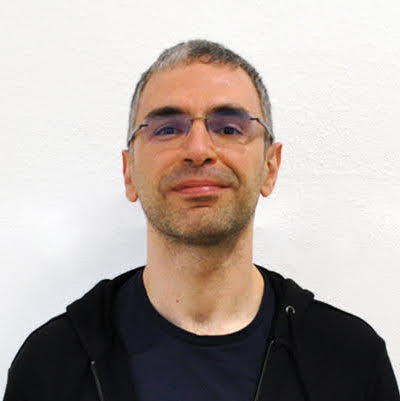

Title: Autonomous Development at the Individual and Collective Level
ACM Distinguished Scientist,
Member of the Academia Europaea,
Fellow of the Institute of Electrical and Electronics Engineering (IEEE),
Fellow of the Asia-Pacific Artificial Intelligence Association (AAIA)
University of Modena and Reggio Emilia, Italy
Abstract: The increasing complexity and unpredictability of many ICT scenarios let us envision that future systems will have to dynamically learn how to act and adapt to face evolving situations with little or no a priori knowledge, both at the level of individual components and at the collective level. In other words, such systems should become able to autonomously develop mental models of themselves and of their environment. This includes: learning models of own capabilities; learning how to act purposefully towards the achievement of specific goals; learning how to act in the presence of others, i.e., at the collective level; and eventually learn to communicate and cooperate. In this talk, I will introduce the overall vision of autonomous development in ICT systems and identify promising application domains. Then, I will overview the many research areas that are contributing or can potentially contribute to the realization of the vision. Finally, I will present some of the activities of my research group, aimed at attacking the challenge of collective autonomous development.
Short Bio: Franco Zambonelli is full professor of Computer Science at the University of Modena and Reggio Emilia. He got his PhD in Computer Science and Engineering from the University of Bologna in 1997. His research interests include: pervasive computing, multi-agent systems, self-adaptive and self-organizing systems, with applications to healthcare and smart cities. He has published over 130 papers in peer-reviews journals, and has been invited speaker at many conferences and workshops. He is in the editorial board of the ACM Transactions on Autonomous and Adaptive Systems, Springer-Nature Computer Science Journal, IEEE Society and Technology Magazine, the BCS Computer Journal, the Journal of Pervasive Computing and Communications. He has been scientific manager of the EU FP6 Project CASCADAS and coordinator of the EU FP7 Project SAPERE and of the PRIN 2017 Project Fluidware. He is ACM Distinguished Scientist, Member of the Academia Europaea, IEEE Fellow, and has been recipient of the 2018 IFAAMAS Influential Paper Award.

Title: Wearable Data for Health: Are we there yet?
Co-director of Centre for Mobile, Wearable Systems and Augmented Intelligence,
Fellow of Jesus College
University of Cambridge, UK
Abstract:
Wearable devices are becoming pervasive in our lives, from smart watches measuring our physiology to wearables for the ear accompanying us
in every run or virtual meeting.
In this talk I will discuss where commercial systems have gotten to today and highlight the open challenges that these technologies still face before
they can be trusted health measurement proxies. Namely, the ability to work in the wild and to cope with the variability of uses;
the trade offs that we need to consider with respect to the sensitivity of the data and the use of constrained on device resources;
the uncertainty of the prediction over the data which may hamper the trust we put in the accuracy prediction.
I will use examples from my team's ongoing research on audio based machine learning for health, on-device machine learning,
``hearable'' sensing and uncertainty estimation for health applications.
Short Bio: Cecilia Mascolo is a Full Professor of Mobile Systems in the Department of Computer Science and Technology, University of Cambridge, UK. She is director of the Centre for Mobile, Wearable System and Augmented Intelligence. She is also a Fellow of Jesus College Cambridge and the recipient of an ERC Advanced Research Grant. Prior joining Cambridge in 2008, she was a faculty member in the Department of Computer Science at University College London. She holds a PhD from the University of Bologna. Her research interests are in mobile systems and machine learning for mobile health. She has published in a number of top tier conferences and journals in the area and her investigator experience spans projects funded by Research Councils and industry. She has served as steering, organizing and programme committee member of mobile and sensor systems, data science and machine learning conferences. More details at www.cl.cam.ac.uk/users/cm542.

Title: Representation and Quantification of Uncertainty in Machine Learning
Chair of Artificial Intelligence and Machine Learning
Ludwig-Maximilians-Universität München, Germany
Abstract: Due to the steadily increasing relevance of machine learning for practical applications, many of which are coming with safety requirements, the notion of uncertainty has received increasing attention in machine learning research in the recent past. This talk will address questions regarding the representation and adequate handling of (predictive) uncertainty in (supervised) machine learning. A specific focus will be put on the distinction between two important types of uncertainty, often referred to as aleatoric and epistemic, and how to quantify these uncertainties in terms of suitable numerical measures. Roughly speaking, while aleatoric uncertainty is due to randomness inherent in the data generating process, epistemic uncertainty is caused by the learner's ignorance about the true underlying model.
Short Bio: Eyke Hüllermeier is a full professor at the Institute of Informatics at LMU Munich, Germany, where he heads the Chair of Artificial Intelligence and Machine Learning. He studied mathematics and business computing, received his PhD in computer science from Paderborn University in 1997, and a Habilitation degree in 2002. Prior to joining LMU, he held professorships at several other German universities (Dortmund, Magdeburg, Marburg, Paderborn) and spent two years as a Marie Curie fellow at the IRIT in Toulouse (France). His research interests are centered around methods and theoretical foundations of artificial intelligence, with a specific focus on machine learning, preference modeling, and reasoning under uncertainty. Besides, he is interested in the application of AI methods in other disciplines, ranging from the natural sciences and engineering to the humanities and social sciences.
He has published more than 400 articles on related topics in top-tier journals and major international conferences, and several of his contributions have been recognized with scientific awards. Professor Hüllermeier serves on the editorial board of leading journals in AI and machine learning and is a regular member of the program committee of major AI conferences. Currently, he also serves as president of EuADS, the European Association for Data Science.

Title: What is the Meaning of Superhuman Performance in Natural Language Processing?
Full Professor and Head of the Sapienza NLP Group,
Co-founder of Babelscape srl & BabelNet evangelist
Sapienza University of Rome, Italy
Abstract: Lately, Natural Language Processing (NLP) has impressed the general public with the introduction of generative AI systems based on pre-trained Large Language Models (LLM). The astonishing results of these systems have led researchers to repeatedly flaunt the achievement of "superhuman performance". Beyond the shared feelings and extraordinary achievements of LLMs in a large number of tasks, in this talk I will analyze the current landscape carefully and critically, highlighting both the low-hanging fruits and the exaggerations of enthusiasts and, consequently, the weaknesses and areas for improvement.
Short Bio: Roberto Navigli is Professor of Computer Science at the Sapienza University of Rome, where he leads the Sapienza NLP Group. He is the author of more than 200 publications on multilingual Natural Language Understanding. He received two prestigious ERC grants in AI on multilingual word sense disambiguation (2011-2016) and multilingual language- and syntax-independent open-text unified representations (2017-2022), selected among the 15 projects (out of 10,000) through which the ERC transformed science. In 2015 he received the META prize for groundbreaking work in overcoming language barriers with BabelNet, a project highlighted in The Guardian and Time magazine and currently used by thousands of universities and research bodies. In 2017 and 2022 he received two Artificial Intelligence Journal prominent paper awards, respectively for BabelNet and NASARI. He is the co-founder of Babelscape, a successful company which enables Natural Language Understanding in dozens of languages. He served as Associate Editor of the Artificial Intelligence Journal (2013-2020) and Program Chair of ACL-IJCNLP 2021. He will serve as General Chair of ACL 2025.
| Edward Feigenbaum (Turing Award Laureate) | WI-IAT 2001, WI-IAT 2012 |
| Lotfi A. Zadeh | WI-IAT 2003 |
| John McCarthy (Turing Award Laureate) | WI-IAT 2004 |
| Tom M. Mitchell | WI-IAT 2004, WI-IAT 2021 |
| Richard M. Karp (Turing Award Laureate) | WI-IAT 2007 |
| Yuichiro Anzai | WI-IAT 2011 |
| John Hopcroft (Turing Award Laureate) | WI-IAT 2013 |
| Andrew Chi-Chih Yao (Turing Award Laureate) | WI-IAT 2014 |
| Joseph Sifakis (Turing Award Laureate) | WI-IAT 2015, WI-IAT 2021 |
| Butler Lampson (Turing Award Laureate) | WI 2016 |
| Leslie Valiant (Turing Award Laureate) | WI 2016, WI-IAT 2021 |
| Raj Reddy (Turing Award Laureate) | WI 2017 |
| Frank van Harmelon | WI-IAT 2021 |